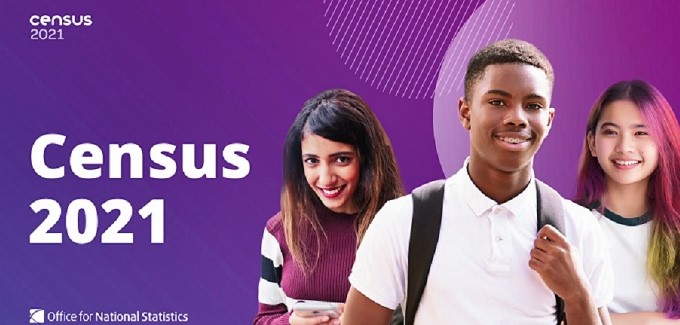
On March 21, the National Census will be conducted in England, Wales and Northern Ireland. The Census happens every decade and households are asked to fill out a questionnaire, indicating who is living in the property – including details such as their age, ethnicity, occupation and relationship status.
The data provides an up-to-date picture of the UK population, which is used by organisations, such as the Government, local councils and charities, to predict and plan the needs of the community. Looking at the data from the Census can be crucial to ensure that each community has the right resources and infrastructure in place for its population, such as healthcare, education, transport and housing.
This year the Office for National Statistics (ONS) said the 2021 Census will also provide a snapshot of the effect of Coronavirus on the population. The Census will also be completed online.
Why the need for a Census?
Censuses have been conducted in different forms since ancient times to provide information about the size of a population and what they needed. The first UK census was in 1801. It is a legal requirement to complete the Census and you can incur a fine for not completing it or for providing false information. Although, some questions are marked as voluntary and do not have to be answered.
All the information collected in a Census is analysed and used to plan the national and local needs of the future. For example, if the number of births and school-age children is rising in an area, then more school places will be needed. By gathering information on people’s age, education, working life and health, our public services can start to plan and predict which services will be required in different communities and target areas that need extra funding. Decision-makers can also use the data to identify areas of health inequalities and areas of unmet need.
The data is analysed and patterns/trends are identified by statisticians, not only is this data used by the government and local councils but also by various organisations such as – charities, hospitals, schools, universities and job centres to plan and fund services like transport, education and healthcare. Sometimes people feel reluctant to fill the Census; concerned about who is using the data and what for.
Everyone’s data is kept confidential and information gathered in censuses is anonymised for service providers to use, the full census is not made available to the public for 100 years. It is the overall trends and demographics that are used for analysis; for example, age, % of children in primary/secondary education, health-related issues, housing and ethnicity.
Why is data needed for healthcare planning?
Demographic changes are important for planning healthcare services. The major influences on the demand for healthcare services are the size and age of the population.
For example, higher demand may be placed on maternity services in large cities than in more rural areas, but some areas may have a higher percentage of people aged over 75, and with old age comes various pathologies, which can mean longer stays in hospital and higher demand on caring and support services.
Local populations can vary significantly not just in age but also in ethnic groups, which is why the census asks for this information. Certain ethnic groups can be more-likely to suffer from different health issues, for example, sickle cell disease is more common in people of African descent. People from SE Asian backgrounds are often at a higher risk of diabetes, looking at demographics different service providers can try to ensure that funding to support services, such as diabetic clinics, are targeted in the right areas.
The independent NHS Race and Health Observatory has called on people from minority ethnic groups to complete the Census, saying it is important the Census captures an accurate picture of health conditions and caring responsibilities within Black, Asian and minority ethnic households to ensure local healthcare services, hospitals and social care providers can deliver a fair and inclusive healthcare service.
Another factor that can influence changes in the population is migration. Since the last census, there have been changes to the membership of the EU and more immigrants have come from Eastern European countries. Migrants from different countries may have different health needs. In addition, often it is younger people who tend to migrate, this can be couples with small children or couples who come to settle and then have children here, which can significantly increase the number of births in an area, meaning expansion of maternity services and extra school places required.
Why data matters
Populations change over time. In the UK, for example, we have an ageing population with people living longer, and as the Covid-19 vaccine rollout has demonstrated we have a significant number of older people – around 3.4 million people in the UK are aged over 80.
Our lifestyles are also changing, and the jobs people do have changed – fewer people are now employed in agriculture or factories than previous generations. Due to our rising standard of living and housing, we are living longer, but with more long-term illnesses like diabetes, asthma and cardiovascular disease. A range of services is required to ensure people have access to the healthcare they need, but in many areas, there are health inequalities where people are unable to access services due to a lack of funding or support services.
The Census helps us understand our current population and predict future needs. It can provide information about what services are needed and where, and this helps government and local service providers to work together and offer a wider range of services, that are easier to access and closer to where people are living.
Rachel Kayani